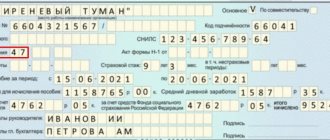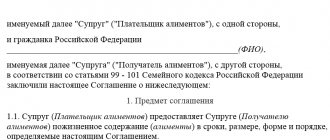One-time payments to adoptive parents in Russia when placing a child in a family for upbringing
Similar benefits are established both at the federal and regional levels.
First of all, we will analyze federal legislation, since this article is dedicated to the Moscow region, and we will indicate what lump sum payments exist in Moscow.
One-time payments to adoptive parents in the Russian Federation are established by Federal Law No. 81-FZ of May 19, 1995 “On state benefits for citizens with children.”
The procedure and conditions for payment are established by Order of the Ministry of Health and Social Development of the Russian Federation dated December 23, 2009 No. 1012n.
The benefit is assigned and paid within 6 months from the date of entry into legal force of the court decision on the adoption of a child left without parental care.
During the specified period, the adoptive parent must contact the department of social protection of the population with the relevant documents.
What documents are required to process a lump sum payment to adoptive parents?
- application for benefits;
- passport of the adoptive parent (passports of adoptive parents);
- birth certificate of a child placed in a family for upbringing;
- documents confirming the family relationships of children (for persons who have adopted brothers and (or) sisters);
- documents confirming that the adopted child has a disability;
- a document confirming the transfer of the child to a family for upbringing (a copy of the court decision on adoption that has entered into legal force);
- a document on the name and details of the credit institution and the account number to which the benefit will be transferred.
Foreign citizens and stateless persons, refugees permanently residing in the territory of the Russian Federation represent :
- identification document,
- resident card,
- temporary residence permit,
- work book or employment contract,
- a certificate from the territorial body of the Social Insurance Fund of the Russian Federation on registration with the territorial bodies of the Social Insurance Fund of the Russian Federation as an insurer,
- refugee certificate.
How to receive payments to adoptive parents, guardians, foster parents
The adoptive parent can issue a monthly compensation payment if an orphan or a child left without parental care is adopted in Moscow after January 1, 2009. The adoptive parent himself does not have to be a Muscovite; registration at his place of residence in Russia is sufficient.
You must apply for payment within 12 months from the date of adoption of the child. If the adoptive parent applies for payment after this period, it will be awarded not from the month of adoption, but only for the 12 months preceding the application. Paid until the child reaches 18 years of age, unless circumstances arise in which the payment ceases.
To process the payment you will need:
- statement;
- passport or other identity document;
- spouse's passport (if a child is adopted by both spouses);
- child's birth certificate;
- a court decision on adoption that has entered into legal force (with a note on entry);
- child adoption certificate;
- a single housing document or a certificate from housing authorities or local authorities confirming the child’s place of residence with the adoptive parent*;
- a document indicating the name and details of the credit institution and the account number to which the benefit will be transferred;
- a document confirming the date of termination of the child’s full state support or the date of termination of payment of funds for the maintenance of this child to the guardian (trustee), adoptive parent;
- a certificate from the Moscow social protection department at the spouse’s place of residence confirming that he has not received this payment (if a child is adopted by both spouses)*;
- a certificate from the guardianship and trusteeship authority of another constituent entity of the Russian Federation on the termination of monthly payments in connection with adoption.
Adoptive parents living in Moscow must submit an application and documents for payment processing to the social welfare department at their place of residence. For those who live outside the city, go to the social protection department at the place where the child was adopted.
The application must be considered no later than 10 working days from the date of receipt of all documents.
After the payment is assigned, every year, no later than December 1, the adoptive parent must submit to the social protection department that pays the funds a document confirming cohabitation with the child. At the request of adoptive parents who permanently reside in Moscow, social protection authorities can request a single housing document independently.
Amount of one-time payments in Russia
From February 1, 2021, for citizens who have adopted an orphan or a child without parental care who is disabled, or a child over 7 years old, or who have adopted brothers and (or) sisters: RUB 124,929. 83 kop.
From February 1, 2021, for persons who adopted an orphan, a child without parental care and who is not disabled, a child under 7 years old, or a child adopted at the same time as a brother (sister): 16,350.33 rubles.
Legal basis
Payment of cash benefits to foster families is controlled by law.
The amount of payments, the procedure for their transfer, as well as the categories of adoptive parents who are entitled to them are regulated in the following legislative acts.
- Federal Law No. 81 “On state benefits for citizens of the Russian Federation with children.”
- Federal Law “On additional measures of state support for families with children.”
Payments of various benefits and additional payments are made under state control
One-time payments to adoptive parents in Moscow
One-time payments to adoptive parents in Moscow are established:
- Law of the city of Moscow dated November 30, 2005 No. 61 “On additional guarantees for social support for orphans and children left without parental care in the city of Moscow”,
- Resolution of the Moscow Government dated May 15, 2007 No. 376-PP “On measures to implement Moscow City Law No. 61 dated November 30, 2005 “On additional guarantees for social support for orphans and children without parental care in the city of Moscow.”
A one-time compensation payment is assigned to one of the adoptive parents. The adoptive parent must apply for this payment within 12 months from the date of entry into force of the court decision on adoption
Required documents
- passport, residence permit or other document identifying the applicant, place of residence and citizenship;
- application for a one-time compensation;
- child's birth certificate;
- a court decision on adoption that has entered into legal force;
- adoption certificate;
- a certificate from the guardianship and trusteeship authorities stating that the child, before adoption, was one of the orphans and children left without parental care.
Amount of lump sum payments in Moscow
In the regional legislation of the city of Moscow, the amount of payments is determined by a multiple of the average cost of living per capita. The cost of living is set quarterly by the Moscow City Government.
When adopting one child, a lump sum payment is made in the amount of 5 subsistence minimums.
When adopting a second child - 7 living wages.
When adopting a third and subsequent children - 10 subsistence minimums.
Currently in the city of Moscow there is a living wage approved by Moscow Government Decree No. 663-PP dated September 12, 2021 “On establishing the living wage in the city of Moscow for the second quarter of 2021”:
- per capita – 16,426 rubles;
- for the working population – 18,742 rubles;
- for pensioners – 11,603 rubles;
- for children – 14,252 rubles.
Thus, when adopting the first child, a one-time payment is made in the amount of 82,130 rubles , the second - 114,982 rubles , the third and subsequent child - 164,260 rubles .
About the adoption of children
Legislation creates all kinds of conditions to interest people in adoption. It is thanks to such targeted measures that the situation began to improve in 2021, and the number of children who need foster families has decreased significantly.
At the federal level, measures have been taken to strengthen family ties:
- More organizations have appeared that provide psychological, legal and pedagogical assistance to adoptive families;
- for one-time adoption of siblings, the state issues a monetary incentive;
- the number of adopted children returning to educational institutions has decreased.

The state promotes the creation of conditions to interest people in adopting children
The Family Code of Russia (Article 138) guarantees that an adopted child retains the right to receive the required pension and benefits. In addition, additional measures have been developed to protect the state budget from fraudsters who are engaged in adoption for selfish reasons.
Important ! When returning an adopted child to an orphanage, the adoptive family must return all funds that were transferred for him by the state.
Amount of child support upon adoption
Adoptive parents must fulfill their obligations in relation to adopted children, including the payment of alimony, on the basis of the RF IC.
There are no differences in the payment of child support for natural or adopted children. The transfer of alimony occurs by court decision in a firmly fixed amount and in the form of a certain percentage of the payer’s income.

There is no difference in child support payments for a natural and adopted child.
1⁄4 of the total income is calculated in favor of one child, 1/3 for two children, and if there are more than three children, alimony will be 50% of the monthly salary.
An unemployed parent is required to pay child support in the same way as a working parent, since lack of income cannot serve as a valid reason for leaving children without support.
Important ! Alimony in a fixed amount is accrued upon a statement of claim at a trial or in the case of voluntary consent, if the alimony does not make payments or his income is temporary.
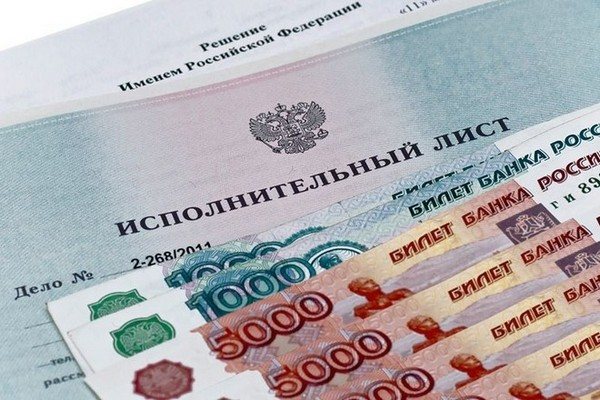
The amount of alimony is set by the court
Indexation of payments takes place according to a standard scheme or by voluntary agreement of both parties.
Attention ! In order to relieve yourself of the obligation to pay alimony, you cannot cancel the adoption. In case of voluntary adoption, the court will not overturn the decision on paternity.
Even if the status of paternity is removed, it will be possible to get rid of the requirements for payment of alimony only in the event of re-adoption by the newly made husband or wife.

Even if the court decides to annul the adoption and deprive one or both citizens of parental rights, this will not free them from child support.
Transferring a child to a foster family
If a child who has not reached the age of majority is left without parental care, then for his normal development in society he needs a family or other close people who will deal with problems of safety, upbringing and education.
This legislation has developed several ways to place such a child in foster care (Article 123 of the Family Code of the Russian Federation).
- Court recognition of adoption . This method differs from others used when placing a family in the fact that the child is endowed with the same responsibilities and rights as if he were born into it (Article 137 of the Family Code, paragraph 1.)
- Establishment of guardianship and guardianship. Such methods do not have fundamental differences, but are relevant to different age categories of children; a child under 14 years of age requires guardianship, and after 14-18 years of age - guardianship. At the same time, the guardian (trustee) bears only part of the traditional parental responsibilities. However, his ward is not assigned the same duties that a natural or adopted child is obliged to perform in relation to his parents. In most cases, guardianship or trusteeship is carried out disinterestedly, but sometimes there is a reward for such care (Article 16 of Federal Law No. 48).
- Placement in a foster family . This is a disinterested form of guardianship or trusteeship, carried out on the basis of an agreement concluded by the guardianship authorities with an entire foster family or with a foster parent (Article 152 of the Family Code, paragraph 1).
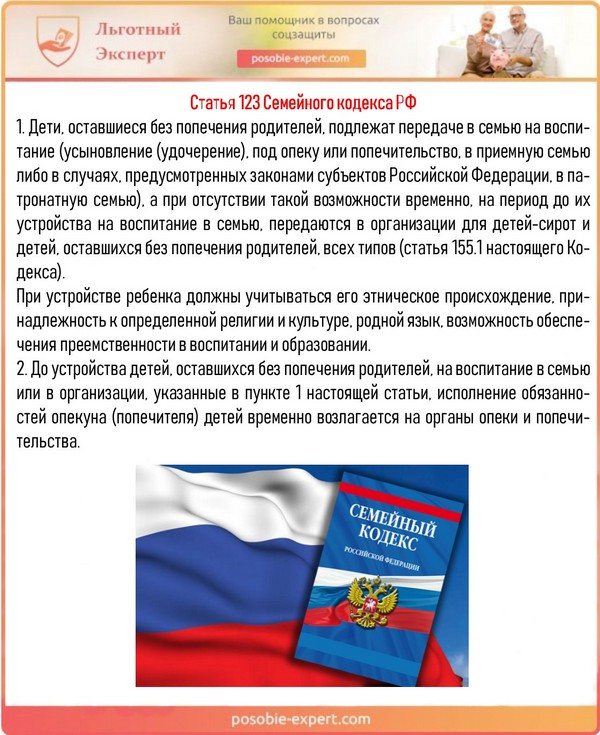
Article 123 of the Family Code of the Russian Federation
The use of any of the above types does not mean that people raising a child will be exempt from state control over the observance of the rights of the child. Control is carried out by guardianship authorities.
Legal protection of orphans
Children who have lost their parents are protected by the state. State protection measures include the establishment by federal laws of the conditions necessary for life support and further socialization of orphans. This includes: the benefits they are entitled to, the right to occupied living space after the loss of parents or provision for it upon reaching the age of 18 years.
The protection of orphans is built on a serious legal basis:
- the Family Code, which defines the basic rights of orphans and the activities of organizations for their accommodation;
- Federal Law No. 159, as amended in November 2015, stipulating additional guarantees.
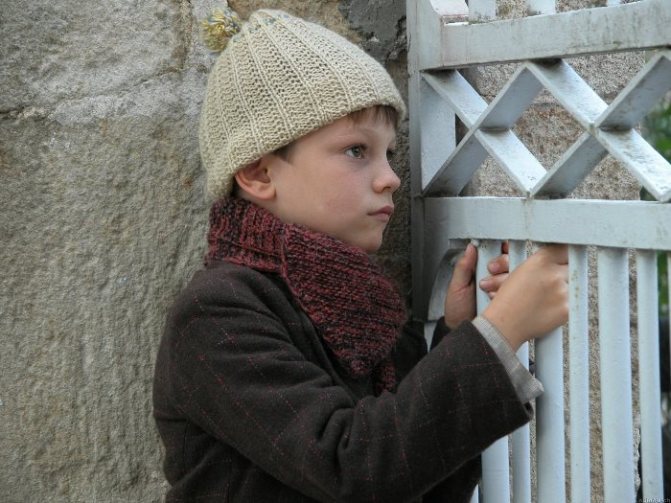
Organizations that take care of orphans must create comfortable living conditions, provide them with the necessary medical care and a level of education that corresponds to modern realities. A child can be placed under supervision only with the consent of the guardianship authorities. This is a forced measure used if it is not possible to immediately find a foster family for a child.
When a child is recognized as an orphan
They try to socialize children left without parental care as quickly as possible, placing them in foster families and establishing guardianship or guardianship over them. Those who are less fortunate are accepted into orphanages and boarding schools. There may not be the warmth of a family hearth here, but communication with peers will not allow you to feel lonely and useless.
A child under 18 years of age is recognized as an orphan in cases where the parents:
- died;
- declared missing by judicial authorities;
- deprived of parental rights;
- are seriously ill and unable to care for children;
- are wanted by law enforcement agencies or are serving sentences in prison.
Thanks to measures taken by the government and the growing popularity of family values among Russians, the number of orphans is decreasing.
According to statistics, 20% of the population dream of adoption and do not pay attention to crises. Over the past year, more than 40,000 adopted children were registered, and this year’s indicators promise better results.


